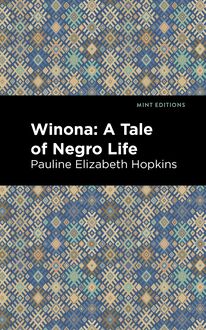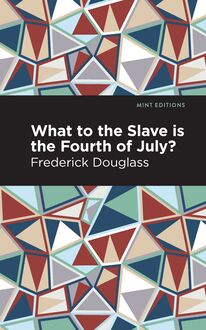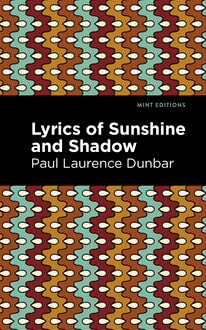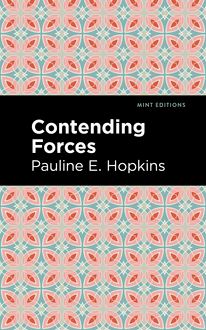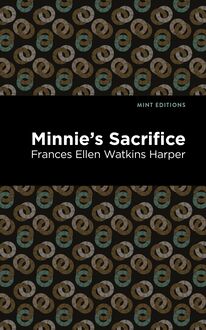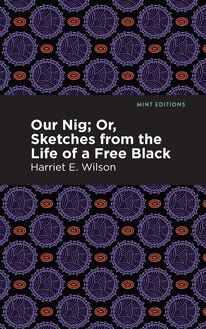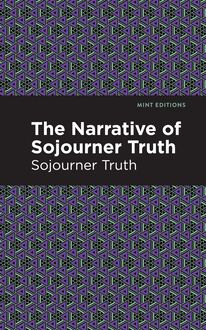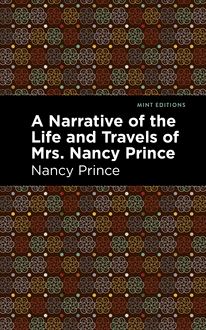-
 Univers
Univers
-
 Ebooks
Ebooks
-
 Livres audio
Livres audio
-
 Presse
Presse
-
 Podcasts
Podcasts
-
 BD
BD
-
 Documents
Documents
-
- Cours
- Révisions
- Ressources pédagogiques
- Sciences de l’éducation
- Manuels scolaires
- Langues
- Travaux de classe
- Annales de BEP
- Etudes supérieures
- Maternelle et primaire
- Fiches de lecture
- Orientation scolaire
- Méthodologie
- Corrigés de devoir
- Annales d’examens et concours
- Annales du bac
- Annales du brevet
- Rapports de stage
La lecture à portée de main
Vous pourrez modifier la taille du texte de cet ouvrage
Découvre YouScribe en t'inscrivant gratuitement
Je m'inscrisDécouvre YouScribe en t'inscrivant gratuitement
Je m'inscrisEn savoir plus
Vous pourrez modifier la taille du texte de cet ouvrage
En savoir plus

Description
Sojourner Truth, one of the most revered figures in American history, explains her road to liberation, spiritual enlightenment and the development of her feminist values. It’s a critical view of her enduring commitment to freedom and equality. In The Narrative of Sojourner Truth, the author delivers an honest look at her eventful life. Starting in New York, where she born to enslaved parents, Sojourner eventually escaped with her daughter in tow. Later, she became the first black woman to sue a white slaveowner for custody of her own child. She won the case, setting a precedent that many African Americans would follow. This narrative also includes her work as a preacher, where she focused on spreading the word of God. Truth became a charismatic orator, seeking liberation and gender equality. The Narrative of Sojourner Truth is a harrowing yet inspiring tale of an American hero. It explores how a formerly enslaved woman defied the odds to become a powerful beacon of hope. With an eye-catching new cover, and professionally typeset manuscript, this edition of The Narrative of Sojourner Truth is both modern and readable.
Sujets
Informations
| Publié par | Mint Editions |
| Date de parution | 21 mai 2021 |
| Nombre de lectures | 0 |
| EAN13 | 9781513279091 |
| Langue | English |
| Poids de l'ouvrage | 2 Mo |
Informations légales : prix de location à la page 0,0450€. Cette information est donnée uniquement à titre indicatif conformément à la législation en vigueur.
Extrait
The Narrative of Sojourner Truth
Sojourner Truth
The Narrative of Sojourner Truth was first published in 1850.
This edition published by Mint Editions 2021.
ISBN 9781513278636 | E-ISBN 9781513279091
Published by Mint Editions®
minteditionbooks .com
Publishing Director: Jennifer Newens
Design & Production: Rachel Lopez Metzger
Project Manager: Micaela Clark
Typesetting: Westchester Publishing Services
C ONTENTS H ER B IRTH AND P ARENTAGE A CCOMMODATIONS H ER B ROTHERS AND S ISTERS H ER R ELIGIOUS I NSTRUCTION T HE A UCTION D EATH OF M AU -M AU B ETT L AST D AYS OF B OMEFREE D EATH OF B OMEFREE C OMMENCEMENT OF I SABELLA ’ S T RIALS IN L IFE T RIALS C ONTINUED H ER S TANDING WITH H ER N EW M ASTER AND M ISTRESS I SABELLA ’ S M ARRIAGE I SABELLA AS A M OTHER S LAVEHOLDER ’ S P ROMISES H ER E SCAPE I LLEGAL S ALE OF H ER S ON I T IS O FTEN D ARKEST J UST B EFORE D AWN D EATH OF M RS . E LIZA F OWLER I SABELLA ’ S R ELIGIOUS E XPERIENCE N EW T RIALS F INDING A B ROTHER AND S ISTER G LEANINGS T HE M ATTHIAS D ELUSION F ASTING T HE C AUSE OF H ER L EAVING THE C ITY T HE C ONSEQUENCES OF R EFUSING A T RAVELLER A N IGHT ’ S L ODGING S OME OF H ER V IEWS AND R EASONINGS T HE S ECOND A DVENT D OCTRINES A NOTHER C AMP M EETING H ER L AST I NTERVIEW W ITH H ER M ASTER
H ER B IRTH AND P ARENTAGE
The subject of this biography, S OJOURNER T RUTH , as she now calls herself—but whose name, originally, was Isabella—was born, as near as she can now calculate, between the years 1797 and 1800. She was the daughter of James and Betsey, slaves of one Colonel Ardinburgh, Hurley, Ulster County, New York.
Colonel Ardinburgh belonged to that class of people called Low Dutch.
Of her first master, she can give no account, as she must have been a mere infant when he died; and she, with her parents and some ten or twelve other fellow human chattels, became the legal property of his son, Charles Ardinburgh. She distinctly remembers hearing her father and mother say, that their lot was a fortunate one, as Master Charles was the best of the family,—being, comparatively speaking, a kind master to his slaves.
James and Betsey having, by their faithfulness, docility, and respectful behavior, won his particular regard, received from him particular favors—among which was a lot of land, lying back on the slope of a mountain, where, by improving the pleasant evenings and Sundays, they managed to raise a little tobacco, corn, or flax; which they exchanged for extras, in the articles of food or clothing for themselves and children. She has no remembrance that Saturday afternoon was ever added to their own time, as it is by some masters in the Southern States.
A CCOMMODATIONS
Among Isabella’s earliest recollections was the removal of her master, Charles Ardinburgh, into his new house, which he had built for a hotel, soon after the decease of his father. A cellar, under this hotel, was assigned to his slaves, as their sleeping apartment,—all the slaves he possessed, of both sexes, sleeping (as is quite common in a state of slavery) in the same room. She carries in her mind, to this day, a vivid picture of this dismal chamber; its only lights consisting of a few panes of glass, through which she thinks the sun never shone, but with thrice reflected rays; and the space between the loose boards of the floor, and the uneven earth below, was often filled with mud and water, the uncomfortable splashings of which were as annoying as its noxious vapors must have been chilling and fatal to health. She shudders, even now, as she goes back in memory, and revisits this cellar, and sees its inmates, of both sexes and all ages, sleeping on those damp boards, like the horse, with a little straw and a blanket; and she wonders not at the rheumatisms, and fever-sores, and palsies, that distorted the limbs and racked the bodies of those fellow-slaves in after-life. Still, she does not attribute this cruelty—for cruelty it certainly is, to be so unmindful of the health and comfort of any being, leaving entirely out of sight his more important part, his everlasting interests,—so much to any innate or constitutional cruelty of the master, as to that gigantic inconsistency, that inherited habit among slaveholders, of expecting a willing and intelligent obedience from the slave, because he is a M AN —at the same time every thing belonging to the soul-harrowing system does its best to crush the last vestige of a man within him; and when it is crushed, and often before, he is denied the comforts of life, on the plea that he knows neither the want nor the use of them, and because he is considered to be little more or little less than a beast.
H ER B ROTHERS AND S ISTERS
Isabella’s father was very tall and straight, when young, which gave him the name of ‘Bomefree’—low Dutch for tree—at least, this is S OJOURNER ’s pronunciation of it—and by this name he usually went. The most familiar appellation of her mother was ‘Mau-mau Bett.’ She was the mother of some ten or twelve children; though Sojourner is far from knowing the exact number of her brothers and sisters; she being the youngest, save one, and all older than herself having been sold before her remembrance. She was privileged to behold six of them while she remained a slave.
Of the two that immediately preceded her in age, a boy of five years, and a girl of three, who were sold when she was an infant, she heard much; and she wishes that all who would fain believe that slave parents have not natural affection for their offspring could have listened as she did, while Bomefree and Mau-mau Bett,—their dark cellar lighted by a blazing pine-knot,—would sit for hours, recalling and recounting every endearing, as well as harrowing circumstance that taxed memory could supply, from the histories of those dear departed ones, of whom they had been robbed, and for whom their hearts still bled. Among the rest, they would relate how the little boy, on the last morning he was with them, arose with the birds, kindled a fire, calling for his Mau-mau to ‘come, for all was now ready for her’—little dreaming of the dreadful separation which was so near at hand, but of which his parents had an uncertain, but all the more cruel foreboding. There was snow on the ground, at the time of which we are speaking; and a large old-fashioned sleigh was seen to drive up to the door of the late Col. Ardinburgh. This event was noticed with childish pleasure by the unsuspicious boy; but when he was taken and put into the sleigh, and saw his little sister actually shut and locked into the sleigh box, his eyes were at once opened to their intentions; and, like a frightened deer he sprang from the sleigh, and running into the house, concealed himself under a bed. But this availed him little. He was re-conveyed to the sleigh, and separated for ever from those whom God had constituted his natural guardians and protectors, and who should have found him, in return, a stay and a staff to them in their declining years. But I make no comments on facts like these, knowing that the heart of every slave parent will make its own comments, involuntarily and correctly, as soon as each heart shall make the case its own. Those who are not parents will draw their conclusions from the promptings of humanity and philanthropy:—these, enlightened by reason and revelation, are also unerring.
H ER R ELIGIOUS I NSTRUCTION
Isabella and Peter, her youngest brother, remained, with their parents, the legal property of Charles Ardinburgh till his decease, which took place when Isabella was near nine years old.
After this event, she was often surprised to find her mother in tears; and when, in her simplicity, she inquired, ‘Mau-mau, what makes you cry?’ she would answer, ‘Oh, my child, I am thinking of your brothers and sisters that have been sold away from me.’ And she would proceed to detail many circumstances respecting them. But Isabella long since concluded that it was the impending fate of her only remaining children, which her mother but too well understood, even then, that called up those memories from the past, and made them crucify her heart afresh.
In the evening, when her mother’s work was done, she would sit down under the sparkling vault of heaven, and calling her children to her, would talk to them of the only Being that could effectually aid or protect them. Her teachings were delivered in Low Dutch, her only language, and, translated into English, ran nearly as follows:—
‘My children, there is a God, who hears and sees you.’ ‘A God, mau-mau! Where does he live?’ asked the children. ‘He lives in the sky,’ she replied; ‘and when you are beaten, or cruelly treated, or fall into any trouble, you must ask help of him, and he will always hear and help you.’ She taught them to kneel and say the Lord’s Prayer. She entreated them to refrain from lying and stealing, and to strive to obey their masters.
At times, a groan would escape her, and she would break out in the language of the Psalmist—‘Oh Lord, how long?’ ‘Oh Lord, how long?’ And in reply to Isabella’s question—‘What ails you, mau-mau?’ her only answer was, ‘Oh, a good deal ails me’—‘Enough ails me.’ Then again, she would point them to the stars, and say, in her peculiar language, ‘Those are the same stars, and that is the same moon, that look down upon your brothers and sisters, and which they see as they look up to them, though they are ever so far away from us, and each other.’
Thus, in her humble way, did she endeavor to show them their Heavenly Father, as the only being who could protect them in their perilous condition; at the same time, she would strengthen and brighten the chain of family affection, which she trusted extended itself sufficiently to connect the widely scattered members of her precious flock. These instructions of the mother were treasured up and held sacred by Isabella, as our future narrative will show.
T HE A UCTION
At length, the never-to-be-fo
-
 Univers
Univers
-
 Ebooks
Ebooks
-
 Livres audio
Livres audio
-
 Presse
Presse
-
 Podcasts
Podcasts
-
 BD
BD
-
 Documents
Documents
-
Jeunesse
-
Littérature
-
Ressources professionnelles
-
Santé et bien-être
-
Savoirs
-
Education
-
Loisirs et hobbies
-
Art, musique et cinéma
-
Actualité et débat de société
-
Jeunesse
-
Littérature
-
Ressources professionnelles
-
Santé et bien-être
-
Savoirs
-
Education
-
Loisirs et hobbies
-
Art, musique et cinéma
-
Actualité et débat de société
-
Actualités
-
Lifestyle
-
Presse jeunesse
-
Presse professionnelle
-
Pratique
-
Presse sportive
-
Presse internationale
-
Culture & Médias
-
Action et Aventures
-
Science-fiction et Fantasy
-
Société
-
Jeunesse
-
Littérature
-
Ressources professionnelles
-
Santé et bien-être
-
Savoirs
-
Education
-
Loisirs et hobbies
-
Art, musique et cinéma
-
Actualité et débat de société
- Cours
- Révisions
- Ressources pédagogiques
- Sciences de l’éducation
- Manuels scolaires
- Langues
- Travaux de classe
- Annales de BEP
- Etudes supérieures
- Maternelle et primaire
- Fiches de lecture
- Orientation scolaire
- Méthodologie
- Corrigés de devoir
- Annales d’examens et concours
- Annales du bac
- Annales du brevet
- Rapports de stage

